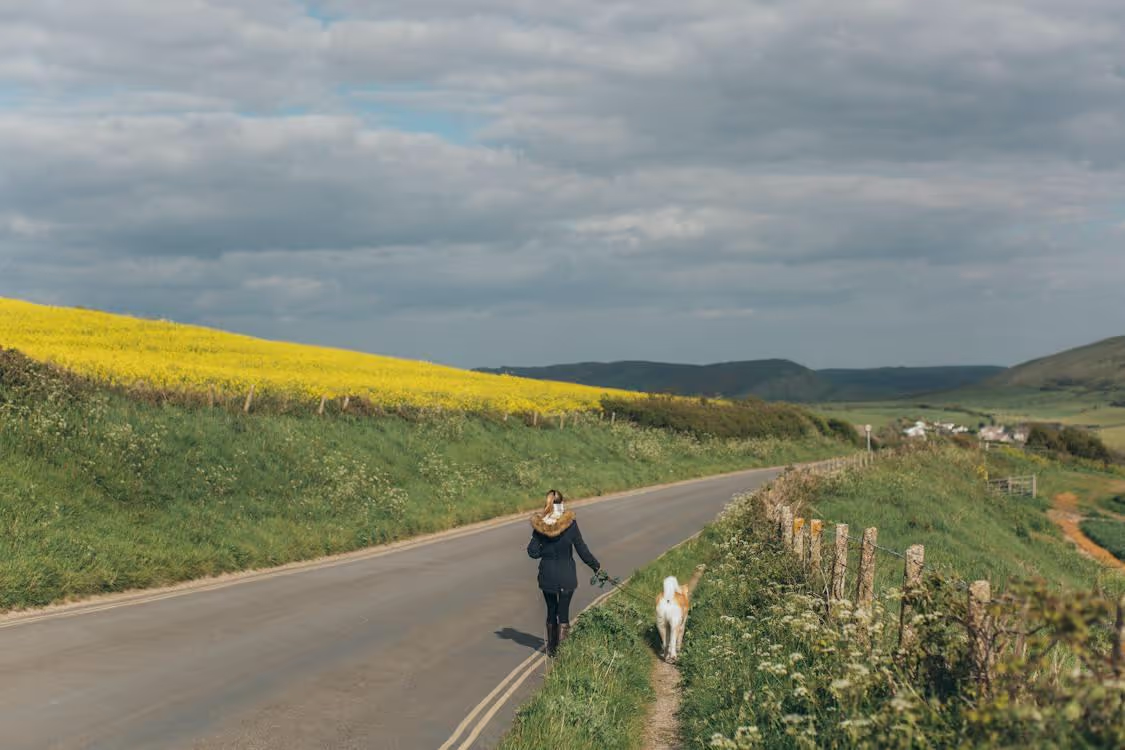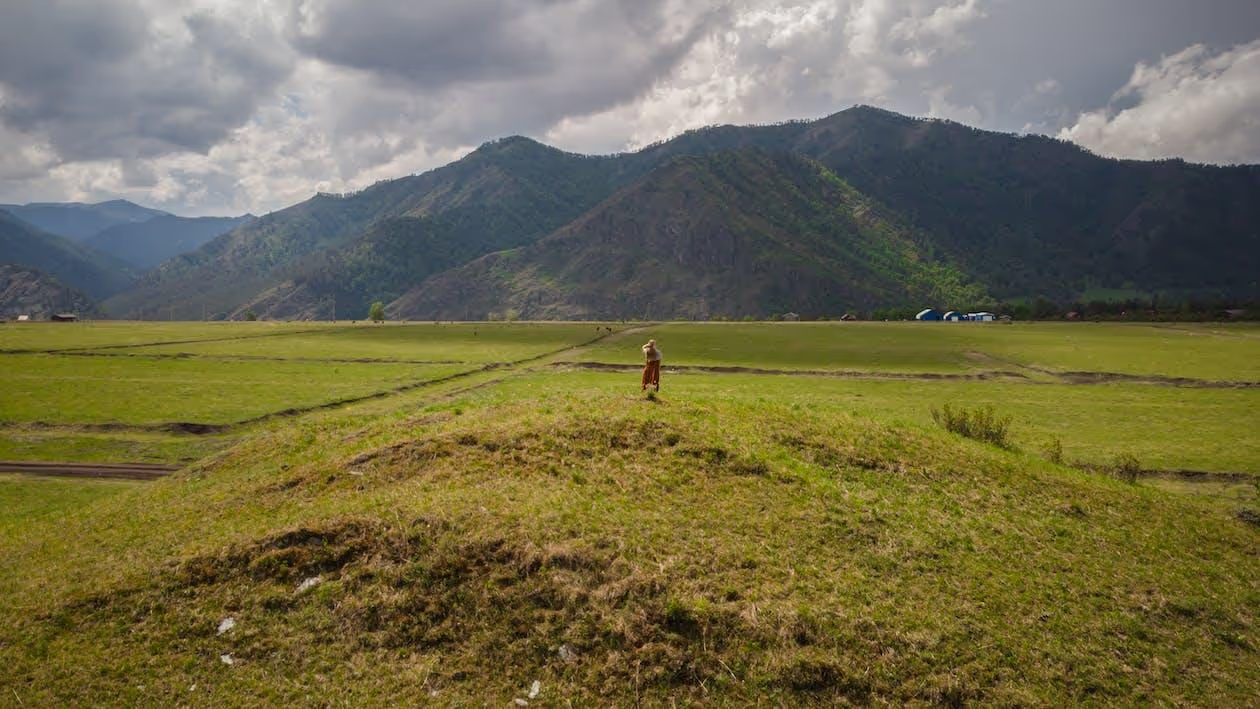The Best Counties to Buy Land in Vermont
Return to BlogGet cash offer for your land today!
Ready for your next adventure? Fill in the contact form and get your cash offer.

By
Bart Waldon
Vermont's picturesque landscapes and rural charm have long attracted those seeking to invest in raw land. According to the USDA's Land Values 2023 Summary, the average value of farm real estate in Vermont reached $3,550 per acre in 2023, marking a 5.3% increase from the previous year. This upward trend in land values underscores the growing appeal of the Green Mountain State for potential buyers. Additionally, Vermont's commitment to conservation is evident, with the Vermont Land Trust reporting that over 11% of the state's land area is permanently conserved. For those looking to purchase land in Vermont, certain counties stand out as particularly attractive options, offering a blend of natural beauty, economic potential, and community appeal.
Overview of Vermont
Vermont spans 9,616 square miles across 14 counties, though much of the terrain is mountainous and forested. Burlington serves as the largest city and sits along the eastern shores of Lake Champlain, which forms part of the border with New York. Nearly 624,000 residents call Vermont home as of 2019 estimates.
The state experiences all four seasons, with average high temperatures ranging from the low 20s Fahrenheit in January up to the upper 70s Fahrenheit in July. Annual snowfall accumulations stretch between 55 to 100 inches depending on the region. Autumn brings an explosion of fall foliage across the mountainsides that attracts leaf peeping tourists from around the world.
Outdoor recreational activities like skiing, snowboarding, hiking, fishing, hunting, kayaking and camping take center stage in Vermont along with agritourism at the state’s farms and maple sugarhouses. Several highly ranked colleges and universities also call Vermont home, including University of Vermont and Middlebury College.
Best Counties to Buy Land in Vermont
Chittenden County
Nestled against the shores of Lake Champlain, Chittenden County ranks as the best county for buying land in Vermont. As home to Burlington and neighboring South Burlington, Winooski and Essex Junction, the county holds the state’s major commercial airport along with the University of Vermont and Champlain College.
With under 300,000 residents, Chittenden still provides urban conveniences and an international airport while remaining immersed in Vermont’s peaceful landscapes. Burlington serves as a cultural hub with a vibrant arts scene, fine dining and a pedestrian-friendly downtown. The city also borders Lake Champlain with gorgeous waterfront views.
The county’s positioning along the I-89 corridor which links Montreal with Boston and New Hampshire makes it very accessible. A temperate climate courtesy of the thermal mass of Lake Champlain also moderates conditions. Chittenden County presents a prime blend of livability, culture and convenience when buying Vermont land.
Median sale price of land in Chittenden County reached $170,000 at the end of 2021, appreciating over 9% year-over-year. Strong demand coupled with dwindling inventory continues placing upward pressure on prices. Home builders also remain active within the county. With the highest median household income statewide, the county boasts exceptional stability.
Rutland County
Tucked against the Green Mountains, Rutland County offers relative affordability for purchasing Vermont land while providing access to renowned ski resorts Killington and Pico. Rutland serves as the largest town and county seat.
The Rutland Region Chamber of Commerce estimates around 60,000 full-time residents within the county, though tourists visiting popular recreation destinations significantly bolster the population at peak travel times. Both Killington Resort and Pico Mountain offer prime ski-in, ski-out development opportunities on the highlands edging the mountains.
Rutland also positions itself as the Vermont Marble Company with 20 active quarries producing world-famous stone. Besides winter sports, summer activities like golf, tennis, hiking, fishing and boating abound around Lake Bomoseen, Vermont’s largest lake contained entirely within state borders. The Appalachian Trail traverses the rugged eastern ridges of the county as well.
At year end 2021, median land sale values in Rutland County grew 6.8% annually to $95,000. Continued strength is forecast given the desirability of recreational properties and second homes within short driving distance of major metro areas like Boston, Hartford and New York City. Rutland offers the best blend of affordability and accessibility for future land sale profits.
Addison County
Addison County spans the north-central region of Vermont, running east along Lake Champlain before butting against the Green Mountains to the west. While less populated than Chittenden County, Addison offers comparable natural beauty coupled with a vibrant collegiate scene thanks to Middlebury College.
The county also holds the headwaters of three major rivers - White, Middlebury and New Haven - leading to exceptional fishing and boating opportunities. Over 100 lakes and ponds dot the landscape as well, including Snake Mountain and Lake Dunmore. Tourists flock to the area not only for the college town atmosphere of Middlebury but also for vineyards and craft breweries benefitting from the unique climate and terroir.
Addison County is exceptionally scenic and peaceful. Land prices remain more affordable than Chittenden as well. Median values for vacant land currently sit around $139,000 as of late 2021, appreciating over 8% from the prior year. The county looks poised for above average future home building and property development.

Washington County
Moving east from Addison County, Washington County provides another attractive option for purchasing Vermont land. The county is home to Vermont’s capital city, Montpelier, along with Barre, Waterbury and other charming New England towns. Much of Washington County sits within the Green Mountain National Forest.
Outdoor recreation reigns supreme across the county all four seasons long. Downhill and cross country skiing options abound, including at the Mad River Glen and Sugarbush Resort. Come spring and summer, fishing and boating take main stage across the county’s lakes, rivers and streams including the multi-use North Branch Park along the Winooski River.
Compared to counties farther west, Washington County enjoys slightly warmer summer temperatures and less extreme winter weather thanks to the moderating influence of nearby Massachusetts and the Atlantic Ocean. This allows for a longer fall foliage season as well - great news for leaf peeping!
Available land does remain limited within Washington County which has kept median prices just under $150,000 as of late 2021. However, sustained property value growth around 7% annually confirms healthy demand. People recognize the benefits of buying affordable land just outside Montpelier with recreation readily available.
Windsor County
Lastly, Windsor County merits consideration when buying land in Vermont thanks to its Upper Valley region shared with neighboring New Hampshire. The county is home to historic towns like Woodstock and Quechee along the Ottauquechee River. The Appalachian Trail traverses highlands on the county’s eastern slopes.
Outdoor recreation including downhill skiing at Mount Ascutney and Suicide Six plus snowmobiling, snowshoeing, ice fishing draw tourists and second home buyers. Come summer, attractions shift to golf, tennis, hiking, fishing and water sports around the many lakes and rivers. Windsor County is also exceptionally beautiful in September and October during peak fall foliage.
Home prices run higher due to high demand from second home buyers and tourists visiting the popular Woodstock region. However, ample land remains available at relatively reasonable rates. Median land values grew nearly 11% in 2021 to $170,000. Quiet rural towns dot the countryside, providing appealing locations to build a Vermont dream home.
Benefits of Buying Land in Vermont
Beyond the draw of natural splendor and small-town charm, purchasing land in Vermont comes with several key benefits. For starters, land values continue demonstrating resilient long-term appreciation averaging between 5% to 10% annually in recent years - outpacing inflation. Vacant lots and acreage remain in high demand from builders and private buyers looking for homesites.
Secondly, favorable property tax rates relative to the rest of New England make owning Vermont land very affordable long-term. The state does not collect general sales tax on the purchase of property either. Buyers stem from both within and outside the state thanks to Vermont’s quality of life. Out-of-state buyers may purchase land, build a new home and become a resident without needing to quarantine.
Lastly, purchasing land within Vermont serves as a stable investment and one with limited downside risk due to high demand for property relative to supply. Interest rates for land loans also run very competitively as buyers can utilize acreage for agriculture, recreation, residential or commercial development.
Centuries ago, Vermont’s first governor Thomas Chittenden recognized the bounty and beauty of the land by declaring “a people who mean to be their own governors, must arm themselves with power that knowledge gives.” For modern-day land buyers, Vermont provides power through property ownership and the benefits of living within or owning a small stake of paradise.

Final Thoughts
When it comes to purchasing premium land in Vermont, few opportunities compare to the offerings across Chittenden, Rutland, Addison, Washington and Windsor Counties. These areas provide appealing lifestyle factors for future residents along with investment upside potential thanks to rising property values and limited land inventories. Outdoor recreation also abounds all four seasons long from skiing and snowboarding in the winter months to boating, fishing, golf and tennis come spring and summer. And one simply cannot beat Vermont’s spectacular explosion of fall colors each autumn - a memorable treat for leaf peeping tours. With relative affordability and accessibility compared to other New England states, Vermont provides a stable, sensible place to buy land for either private use or as an income-generating asset. The time is right to stake your own personal claim on a slice of Vermont’s natural beauty and relaxed way of life.
Frequently Asked Questions (FAQs)
What are property taxes like in Vermont?
Property taxes in Vermont are generally lower than surrounding states, thanks in part to about 75% of funding for local schools coming from state level income and sales taxes. Effective property tax rates range from 1.6% to 2.3% depending on the town or city. Some offer exemptions for agricultural land or managed forests too.
Does Vermont tax land sale proceeds?
No, Vermont does not tax the proceeds from a land or home sale. The state has no capital gains taxes and does not collect general sales tax. This provides a great incentive when selling land for a profit. However, the state does levy a property transfer tax.
Is it difficult for an out-of-stater to purchase land in Vermont?
It’s relatively straightforward for both residents and nonresidents to buy Vermont land. You do not need to establish residency first. The process mirrors other states - find a suitable property, make an offer, arrange financing if needed, execute sales contract, then close and record the deed. Use a qualified real estate attorney for guidance.
What types of land loans are available in Vermont?
Buyers can choose from conventional mortgages, USDA loans, FHA loans, or VA loans for purchasing Vermont property. Rates and terms vary based on the loan program, your financial profile, the property type, and other factors. Many banks also offer specific land acquisition loans too.
How fast is land in Vermont appreciating?
Over the past 5 years, land values in top Vermont counties have averaged annual appreciation of 5% to as high as 11% in some markets. Limited inventory coupled with continued popularity of Vermont's lifestyle, recreation options and relative affordability point to healthy price growth continuing, especially for strategically located parcels.
